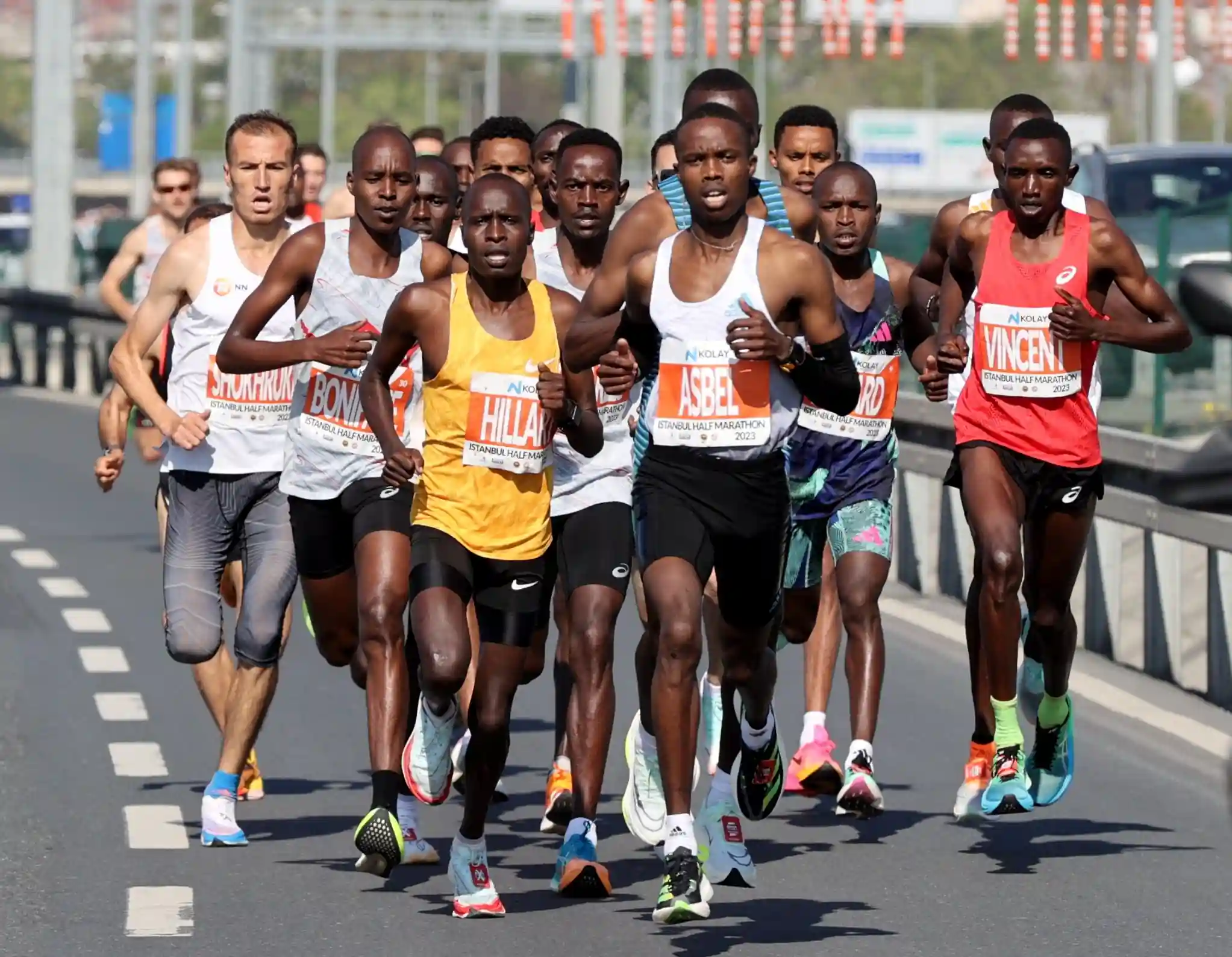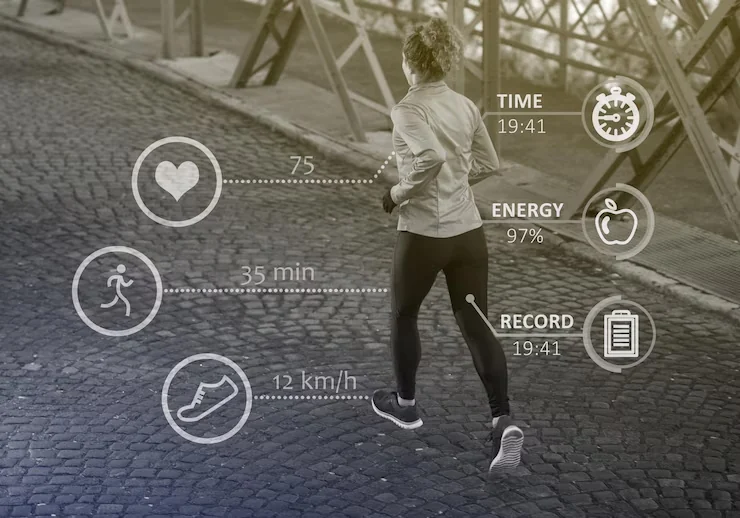Oxford Half Marathon Coaching That Gets You Across The Line — Stronger, Smarter, and Injury-Free
If you’re serious about showing up at the Oxford Half Marathon with more than just good intentions, you’re exactly who we work with. At Pearl Lemon Running, we work directly with runners who want structured training based on real physiology—not guesswork. Whether you’re aiming for a sub-1:45 finish, hoping to complete your first 13.1 miles without fading after mile 9, or feel like you’ve hit a wall—we’ve designed our coaching system to help with that.

Our Coaching Services

We don’t hand out recycled plans from PDFs. Every block of training, every rep, every recovery week, every effort session—serves a clear purpose. That’s what makes the difference on Broad Street when the course flattens and your legs start questioning everything.
Structured Periodized Coaching Plans
Our training plans are organized into progressive blocks customized to your specific physiology and goals:
- Foundation Phase (4-6 weeks): Build aerobic capacity and running efficiency with consistent Zone 2 training, gradually increasing mileage without overtraining.
- Build Phase (4-6 weeks): Add threshold and tempo runs based on your lactate threshold, with careful attention to recovery between sessions.
- Peak Phase (3-4 weeks): Focus on race-specific pacing with interval workouts and race simulation runs that match Oxford Half Marathon course demands.
- Taper Phase (1-2 weeks): Gradual reduction in volume while keeping your muscles sharp through high-quality, lower-volume sessions.
Each plan includes daily workouts with pacing targets, duration, and explanations. Weekly updates are made based on your progress, recovery markers, and feedback—not a fixed schedule.
Biomechanical Profiling
Our detailed movement assessment helps prevent injuries before they occur:
- Video Gait Analysis: Multi-angle running form review at different paces to spot stride imbalances and compensations.
- Functional Movement Screening: 12-point movement assessment identifying mobility limits and stability issues affecting your form.
- Footstrike Analysis: Pressure mapping to evaluate impact forces and weight distribution through your stride.
- Running Economy Assessment: Measuring energy use at race pace to spot form-related inefficiencies.
- Corrective Exercises: Specific drills to target movement issues identified in your assessment.
Physiological Testing & Zone Mapping
We determine accurate training zones based on real markers:
- Field-Based Threshold Testing: Time-trial protocols to identify your current lactate threshold pace and heart rate.
- VO2max Estimation: Using proven field tests to approximate your aerobic capacity.
- Heart Rate Reserve Calculation: Defining accurate zones using resting and max heart rates.
- RPE Calibration: Aligning effort levels with physical markers when devices aren’t available.
- Bi-Monthly Reassessment: Regular updates to keep your training appropriately challenging.


Training Load & Recovery Monitoring
Our tracking tools help you train hard without overdoing it:
- Training Stress Score Tracking: Measuring cumulative load from each workout.
- Heart Rate Variability Monitoring: Daily recovery status from your nervous system.
- Sleep Tracking: Monitoring sleep quality to support recovery.
- Weekly Fatigue Markers: Checking physical and subjective signs of overtraining.
- Acute:Chronic Workload Ratio Monitoring: Watching training increases to stay within safe limits.
- Recovery Plans: Adjustments based on your individual training and fatigue responses.
Strength & Mobility Work
Our strength program improves power and reduces injury risk where it matters most for runners:
- Strength Assessment: Identifying weak points in your running-specific muscles.
- Progressive Strength Plan: Step-by-step exercises that build over your training cycle.
- Core Circuit: Focused training for deep stabilizers to help maintain posture during fatigue.
- Posterior Chain Focus: Glute and hamstring work to support stronger running mechanics.
- Hip Stability Series: Exercises for lateral hip control, especially during fatigue.
- Foot & Ankle Strengthening: Building strength in often-overlooked areas that support running form.
- Mobility Sequences: Dynamic routines for hips, ankles, and upper back mobility.


Race Nutrition Support
Our nutrition approach supports energy, recovery, and performance:
- Metabolic Efficiency Testing: Finding how your body uses carbs and fat at different paces.
- Daily Nutrition Guidelines: Everyday eating habits to support training and recovery.
- Pre-Run Fueling Plans: Timing and content recommendations before runs.
- During-Run Fueling Strategy: Carb intake plans for long sessions and race day.
- Post-Run Recovery Nutrition: Timing and choices to help you recover well.
- Race Week Fuel Plan: Daily breakdown of fueling strategy in the lead-up to race day.
- GI Troubleshooting: Solutions for common digestion issues during long efforts.
Race Week Preparation
Our step-by-step race week approach helps you show up prepared and confident:
- 10-Day Taper Plan: Daily workout schedule to stay fresh but sharp.
- Carbohydrate Load Strategy: Carb-loading approach that avoids heaviness or bloating.
- Race Morning Schedule: A clear timeline from wake-up to start line.
- Course Pacing Plan: Suggested pace targets for each part of the Oxford Half route.
- Mental Prep Routine: Visualization and focus techniques to manage race-day nerves.
- Warm-Up Routine: A reliable activation sequence to prepare your body without wasting energy.
- Contingency Plans: Preparing for weather changes or unexpected race-day situations.


Ongoing Coaching Support
We stay involved throughout your training:
- Weekly Video Reviews: Feedback on your form based on video submissions.
- 48-Hour Session Feedback: Timely analysis of your completed workouts.
- Bi-Weekly Check-in Calls: One-on-one progress and planning discussions.
- Daily Messaging Access: Fast replies to training questions via our coaching app.
- Monthly Plan Review: Full review and updates to your program based on progress.
- Race Strategy Consult: Final-week planning session before race day.
- Post-Race Review: Thorough breakdown of your performance with suggestions for improvement.
FAQs
We use threshold testing and match that with heart rate zones and effort levels to keep your training effective.
We use long runs that gradually increase in effort toward the second half, along with nutrition trials to simulate race conditions.
Yes. We recommend GPS watches with heart rate tracking—Garmin, Coros, or Polar work best—to help us track and manage intensity.
Tapering starts 10–14 days before race day. We lower volume while keeping short, fast efforts to stay sharp.
We adjust the plan right away. Training is flexible—we reorganize the remaining weeks to keep progress on track.
Yes. We work around your weekly availability and prioritize the most effective sessions, not just adding more volume.
If you want to show up on race day with a plan that’s tested, practical, and built around how you actually train—not what a spreadsheet suggests—you’re in the right place.
[Start your coaching consult here.]

